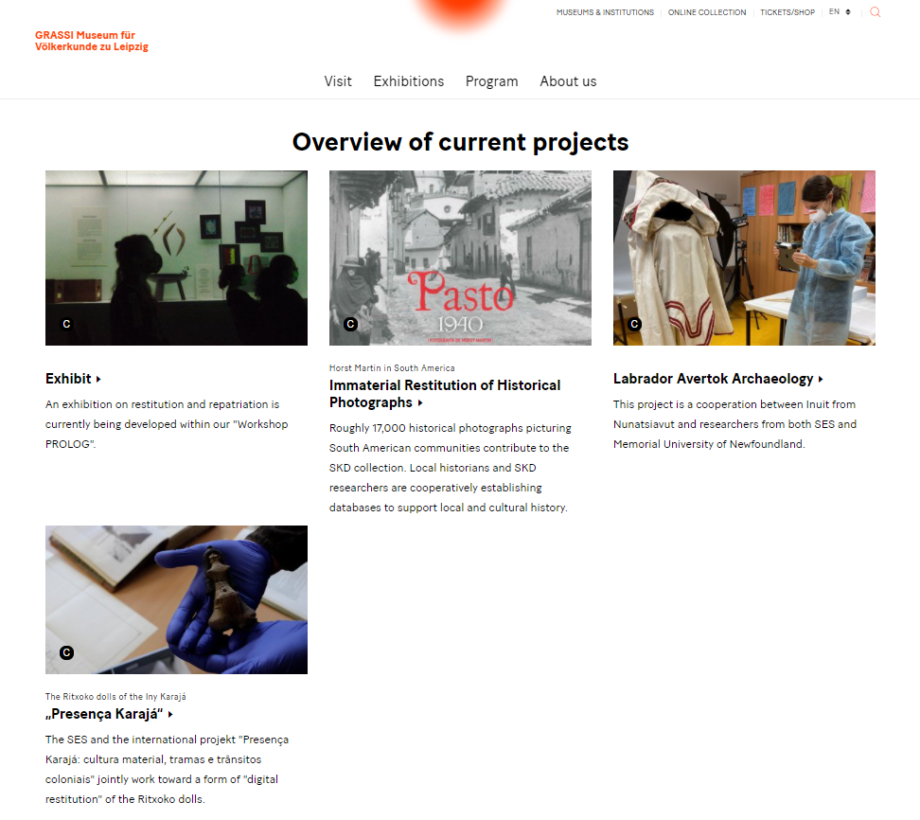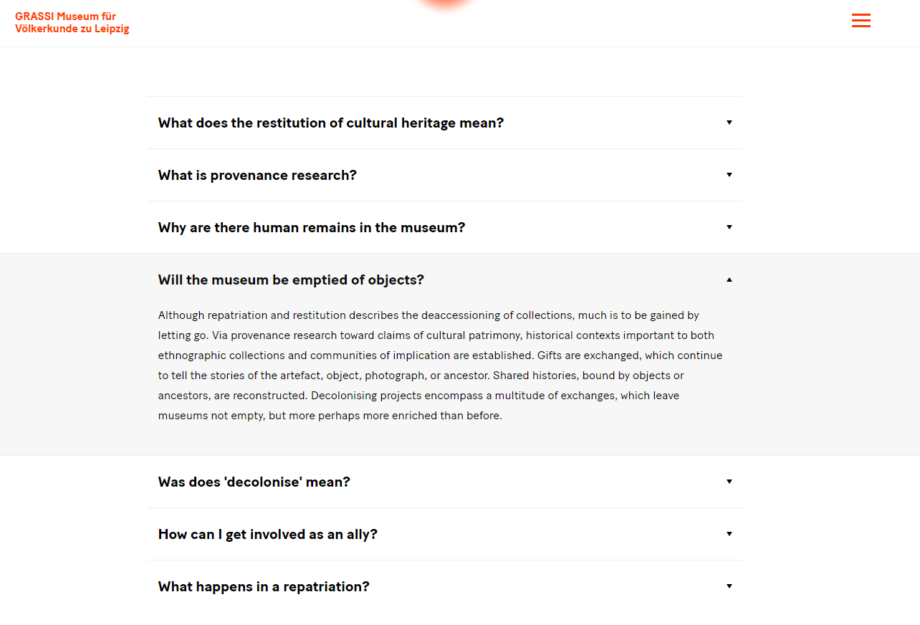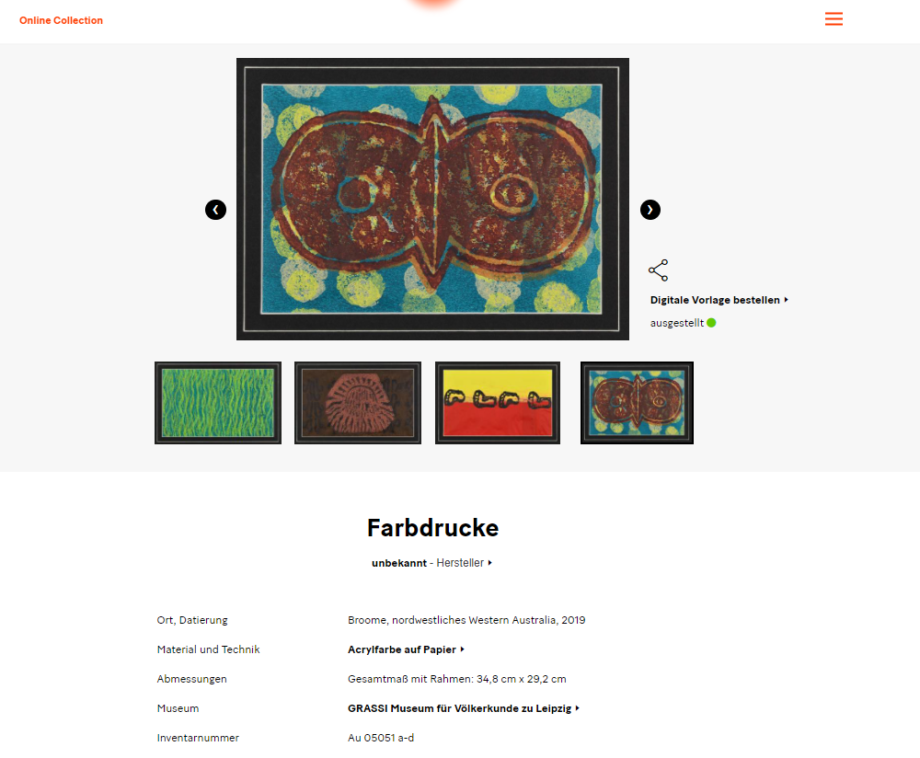Using a Machine with a Humane Motivation? What Is the Contribution Digital Strategies Can Make Towards Museum Decolonisation and Recognition of the Global Interweavings?
A Report about Conceiving a Web Portal on Decolonisation, Restitution, and Repatriation within the State Ethnographic Collections of Saxony (SES)
Decolonisation is a process without a singular solution or an easy answer. Rather, we, the curators of the new web portal of the State Ethnographic Collections of Saxony (SES)[1], perceive it as a multi-vocal and violent process which we attempt to push forward by means of this platform. As museums still tend to attract an older white audience with high levels of formal education, we attempt to address other groups and thus to democratise museum spaces through digital communication.
We have two principal goals. First, the website is meant to inform visitors about restitution and repatriation processes within the SES as openly and transparently as possible. Second, in opening a digital space for discussion, the website aims at activating parts of the local public, museum personnel, activists, scientists, and diasporic communities to engage locally with colonial pasts and neo-colonial repercussions they experience themselves in their personal surroundings. An insight into current projects of the museum conveys in how far local commitment and knowledge is connected to international relationships in past and present.
The website is continually developed and we hope that in future shapes it will be a platform for anybody to learn and exchange internationally about the consequences of colonial interactions. In how far the website will gain momentum remains unclear. However, we hope to inspire other ethnographic collections to invest in means to make their internal challenges transparent to the public through decentralised access.

The Website provides an overview of the museums’ current and past attempts to more transparently communicate about their collections. Image by Staatliche Kunstsammlungen Dresden, ed. by Jan Heidtmann und Miriam Hamburger.

Also quite centrally, the website picks up common questions from the public debate about repatriation and tries to answer them in a differentiated and critical way. Image by Staatliche Kunstsammlungen Dresden, ed. by Jan Heidtmann und Miriam Hamburger.

The portal explains why simply legally owning objects from all over the world does not go hand in hand with ethical global relationships. On point links to the online collection (German only) bring across an impression of what objects we are talking about. Image by Staatliche Kunstsammlungen Dresden, ed. by Jan Heidtmann und Miriam Hamburger.
Jan Heidtmann (M.A.) studied British Studies and Transcultural Studies in Leipzig and Bremen. Mainly, his work focusses on critical diversity as much as on how to raise awareness about colonial continuities to a broader audience. As a freelancer he is co-responsible for the web portal on “Decolonisation, Restitution, and Repatriation”.
Footnotes
[1] SES, short for State Ethnographic Collections of Saxony, comprise three ethnographic museums in Saxony that are each member of the State Art Collections of Saxony (SKD). Namely, the museums concerned are the ethnographic museums of Dresden, Leipzig, and Herrnhut.
Comments
The new webportal of the SES can be accessed via: https://grassi-voelkerkunde.skd.museum/en/research/decolonisation-restitution-and-repatriation/
This contribution is an abbreviated version of the German original that can be accessed via: https://boasblogs.org/de/dcntr/digitale-strategien-zur-dekolonisierung-des-museums/































